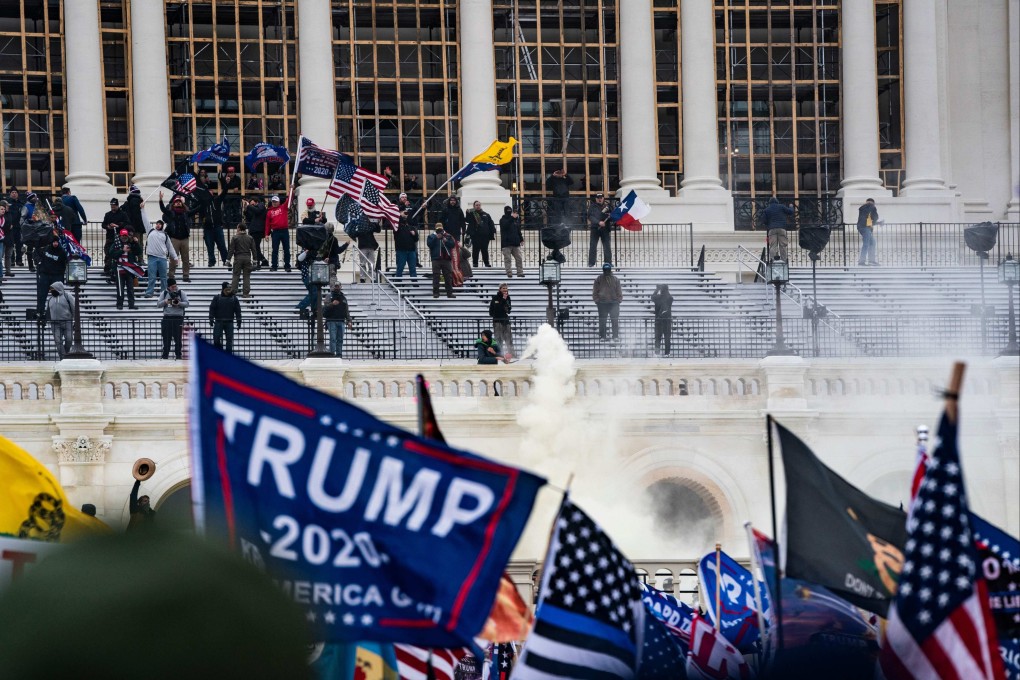Advertisement
Opinion | The religion behind a divided America and its conflict with China
- The crises the US faces at home and abroad are the outgrowth of a peculiar American world view shaped by Christianity’s monotheistic belief system
- Until Americans are willing to move past the myth of ‘American exceptionalism’, the US is unlikely to be able to coexist peaceably with the outside world
Reading Time:3 minutes
Why you can trust SCMP
17

US Secretary of Homeland Security Alejandro Mayorkas reported last month that domestic terrorism was now the top threat to American national security. This real and present home-grown danger is an accretion of a toxic body polity mired in mistrust.
America’s democratic institutions, battered by misinformation and conspiracy theories, have suffered seriously diminished credibility and legitimacy. Take, for example, form president Donald Trump’s extraordinary assertion that the 2020 election result was valid only if he won.
The United States is deeply polarised and its social fabric looks to be fraying at the seams. Yet, a divided America appears united in confronting China. Purposefully anti-Trump in almost every other way, US President Joe Biden seems to have chosen to retain his predecessor’s China policy.
Advertisement
Not surprisingly, the US-China relationship continues to deteriorate, compounded by the White House’s decision to continue investigating the Covid-19 “lab leak” theory.
Identifying the origins of the virus is vital for dealing with future pandemics, but the scientific process has become so politicised that any “independent” investigation is unlikely to yield a result that will be accepted by both sides.
Advertisement
Trust between Washington and Beijing has hit an all-time low and the risk of open conflict is a real and present danger.
Advertisement
Select Voice
Select Speed
1.00x
